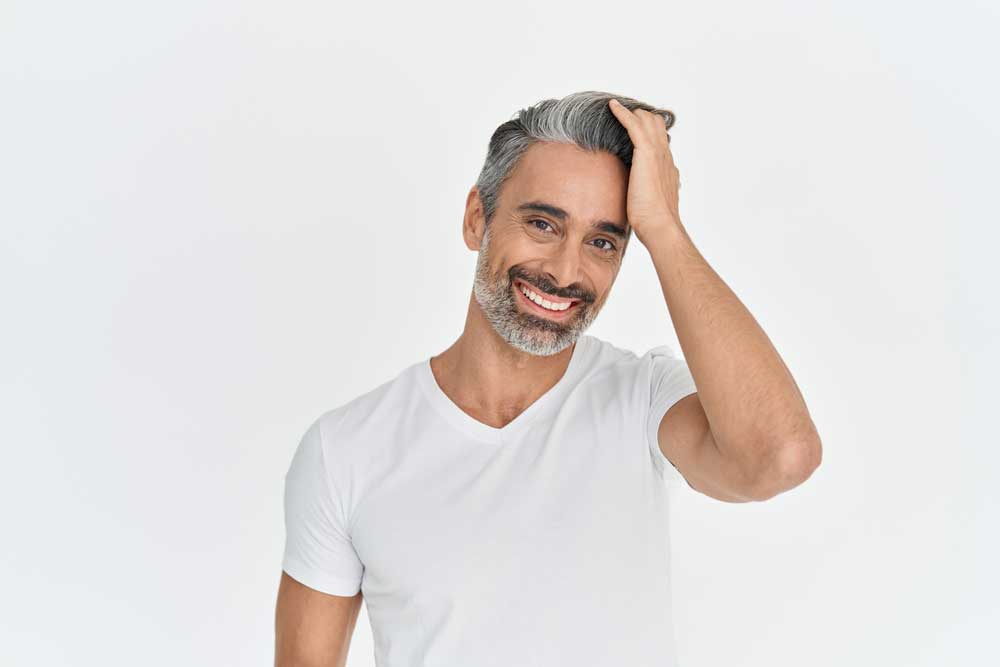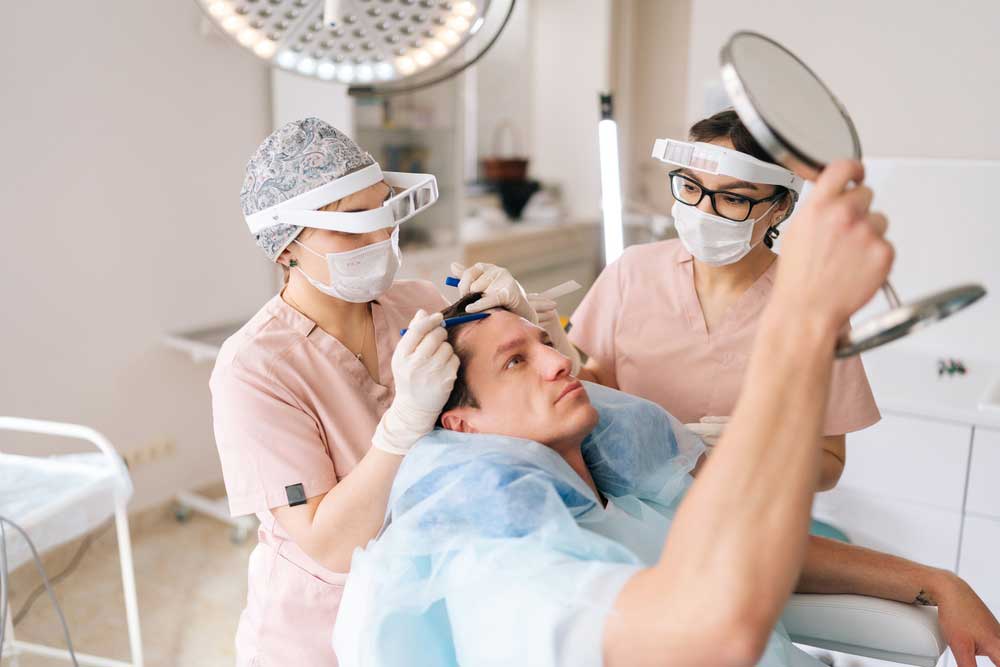People’s hair may start losing volume and thickness as they grow older. Hair loss and thinning can be caused due to factors like a poor diet, vitamin shortages, or hereditary reasons. Often, thinning hair can be a result of an underlying health problem. However, it could also be caused due to natural aging and have nothing to do with your overall health. Either way, it can have a negative impact on your mental health and self-esteem. This article discusses the causes of hair loss, some treatment options, and when to contact a doctor for it.
Causes of Thinning Hair
Hair loss is mostly caused by either of the following factors or a combination of one or more of these:
- Male or female pattern hair loss: Androgenetic alopecia is a term that refers to both male and female pattern baldness. Genes and hormones cause androgenetic alopecia. With age, the chance of developing androgenetic alopecia increases. Even though it can afflict youth, hair loss affects more than half of men aged 50 and above. In women, it generally occurs during menopause.
- Alopecia areata: Alopecia areata is a hair loss disorder that creates circular areas of hair loss on the scalp. It can also affect your beard, eyebrows, and other sections of your body with hair. The main causes are genetics and environmental influences. Fortunately, alopecia areata can be treated. The hair follicles are still alive in this condition, and hair can restart growing.
- Diet: Hair requires protein to grow strong. Micronutrients such as vitamins and minerals play an important role in hair follicle formation. Severe to moderate malnutrition and nutritional deficiency can also lead to hair loss.
- Vitamin D deficiency: Vitamin D promotes hair development by stimulating hair follicles. You can improve your vitamin D intake by spending 10 to 15 minutes in the sun every day or taking vitamin D supplements.
- Stress: People often notice that their hair is thinner than usual after a time of considerable stress. Medically, this condition is referred to as Telogen effluvium. When people experience thinning hair due to stress, their hair normally returns to its regular volume once the stressful circumstance has passed.
- Pregnancy: Hair loss can occur during or after pregnancy. Hair usually regrows on its own without any treatment.
Hair Loss Treatment Options
- Minoxidil (Rogaine): It can be used by both men and women to help regrow hair or hair loss. It’s sold as shampoo, liquid, or foam in stores. Minoxidil is available in two concentrations, 2%, and 5%. The product is applied topically to the sections of the body with thinning hair. For androgenetic alopecia, this is a safe and efficient treatment.
- Finasteride: Finasteride (Propecia) is a drug that is taken orally. Hair loss sufferers should take 1 mg per day. This is a prescription medicine for people who have tried and failed with minoxidil.
- Hair Restoration Surgery: In case medications and other methods do not work your doctor may recommend going for Follicular unit extraction (FUE) or Follicular Unit Transplantation (FUT) surgery to restore your hair. FUE and FUT surgery are often combined with other hair restoration methods to enhance the results of the hair transplant procedure.
See Also: What to Do If Your Hair Is Falling Out Too Much after Dying It?
Home Remedies to Treat Hair Loss
There are some effective home remedies for hair loss that can enhance hair growth in the initial stages of hair loss. These methods can be used independently or in combination with hair restoration treatments. Some Effective Natural Hair Loss Remedies Include the Following.
Eating Hair-Healthy Foods
The following foods may help to promote hair growth:
- Eggs
- Brazil nuts
- Fatty fish
- Walnuts
Vitamin D
Hair loss can be caused by a lack of vitamin D. Taking care of this deficiency could help with hair thinning. Vitamin D-rich foods include:
- Fatty fish
- Beef liver
- Cheese
- Egg yolks
- Mushrooms
- Fortified foods, like milk, cereals, juices, etc.
Essential Oils
Some people use essential oils to promote hair growth.
- Rosemary oil
- Peppermint oil
- Other oils like cedarwood, lavender, tulsi, and thyme oil.
Massaging your scalp may help in the circulation of blood. As a result, hair growth may be encouraged. Always dilute essential oils in a carrier oil such as coconut or jojoba oil to avoid irritation.
Other Natural Remedies
The following therapies, according to a 2019 assessment of alternative treatments for alopecia, may also aid hair growth:
- Capsaicin
- Ginseng
- Garlic gel
- Onion juice
- Procyanidin
- Caffeine
When to See a Doctor?
Often, thinning hair is unrelated to other health issues. You should contact your doctor if you’re concerned about hair loss or if it is affecting your mental health. Consult your doctor if you are experiencing excessive hair loss for no apparent reason or if you’ve recently changed your diet, started new medications, or begun taking supplements. A hair restoration specialist can offer you the best treatment options for thinning hair.
It is typical for a person’s hair to lose strength and volume as they age. Treatments and home remedies can help increase the strength and overall condition of your hair in many cases.
See Also: Is Creatine Responsible for Causing Hair Loss?
How to Stop Hair Fall Immediately?
While there is no safe method as of now to immediately stop hair loss, if you are dealing with excessive hair loss, you should visit us at New Jersey Hair Restoration Center, where we provide the best hair loss treatments, experienced staff, and renowned doctors. At NJHRC, we have New Jersey’s best hair loss specialists who can offer customized treatment for thinning hair with ease. For more details, contact us or visit our website.


